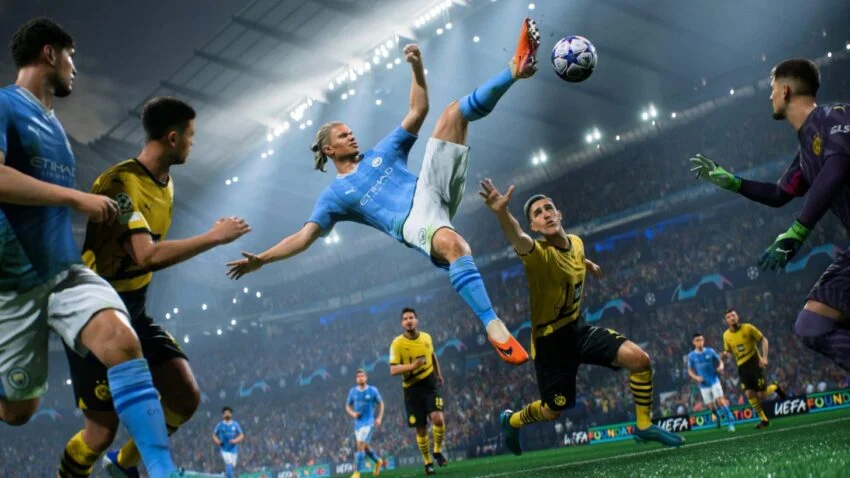Geoff Keighley, better known in gaming circles as the Dorito Pope, has made a return to the spotlight to promote the 2017 Game Awards next month. The TGAs are the new spin-off from the awful Spike TV VGAs, which thankfully died after that awesomely cringey episode with Geoff Keighley and Joel McHale. During his round of promotions, Keighley stopped by the YouTube outlet Funhaus and talked bit about promoting content, advertisers, branding, sponsorship deals and ethics in journalism.
Quite naturally, you can’t talk about advertising without talking about ethics in journalism these days, and that brings us to Keighley having to relive the 2012 fiasco known as DoritosGate (which was like a proto-GamerGate). It involved Keighley in a room with Doritos, Mountain Dew and Halo, leading a lot of people to believe that he was shilling for Microsoft. The whole controversy was detailed over on Know Your Meme.
Funhaus had an interview with Geoff Keighley and talked about his ascension to the status of the Dorito Pope, and surprisingly enough Keighley directly talked about the DoritosGate fiasco in a roundabout way at the 1:00:00 mark. The Funhaus crew only lightly goaded Keighley into the topic by asking if he was self-appointed or decreed the “Dorito Pope” by concensus. You can check out the video below.
At the 1:06:00 mark Keighley talks more about how people perceive what could be payola or corruption in the media journalism ring before further addressing DoritosGate, saying…
“[…] Even with game reviews, if someone gives a game a ‘9’ and everyone else gives it a ‘6’, you’re sort of going to be outed by the natural order of things. For those sort of things, I’m amazed to think that people think there’s some sort of mass collusion going on”
There was collusion going on, with the GameJournoPros. It’s a detail many media outlets try really hard (along with Wikipedia who deleted the article) to erase from the history books.

Nevertheless, Keighley explains that a lot of people thought DoritosGate was about publishers paying off gaming personalities, but in reality he says that it was more about getting “non-endemic” gaming companies involved with gaming, saying…
“[…] Even with the DoritosGate thing and everyone thinking it was some massive corruption where I was being paid off by Microsoft… it actually had nothing to do with Halo and was something tied to a Pepsi deal… and that was me trying to get these brands to do more in gaming.”
“I think a lot of people – when [DoritosGate] came out – a lot of people said ‘Oh this is a shining example how the games media is in bed with the gaming companies. Actually it was the exact opposite; it was trying to get “non-endemic” brands interested in doing more in gaming so gaming media was less reliant on the game publishers. Because if you get Doritos or Mountain Dew to sponsor something, it means you don’t have to get EA, Bethesda or Activision to sponsor it.
Unlike some other outlets and personalities called out for their corruption, under the table deals or backroom collusion, Keighley is a lot more upfront about it and surprisingly he was the one who broached the topic on the show, as it was painfully obvious that the Funhaus crew had no intentions of diving into the cesspit of ethics in journalism, since it’s the one topic that media refuse to talk about.
No matter what you think about Geoff Keighley, he at least had the confidence, gumption and integrity to discuss the topic, something that’s prohibited at many other media outlets online.







